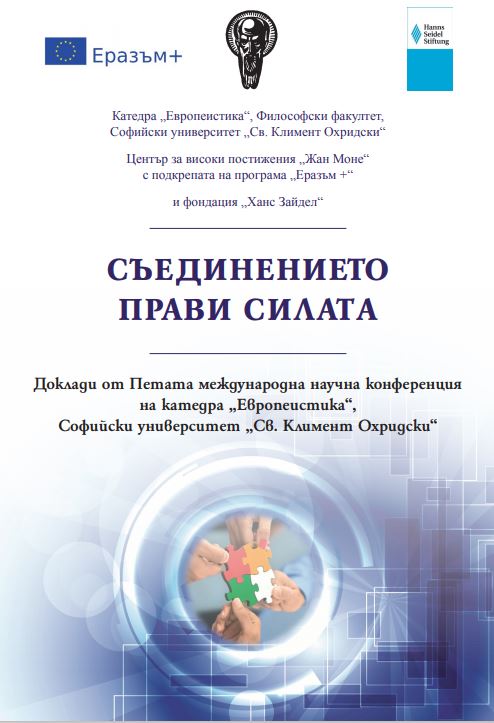National Interests in the EU Eastern Enlargement – Key Lapse in the Academic Literature
National Interests in the EU Eastern Enlargement – Key Lapse in the Academic Literature
Author(s): Mirela Veleva-Eftimova
Subject(s): Politics / Political Sciences, Politics, EU-Approach / EU-Accession / EU-Development
Published by: Университет за национално и световно стопанство (УНСС)
Keywords: Eastern Enlargement; Western Balkans; EU Integration; Academic Literature Review
Summary/Abstract: In February this year, the European Commission presented a Strategy for reliable perspective of enlargement and enhanced engagement of the EU to the countries of the Western Balkans. In this way, the European Commission (EC) formalized the inclusion of the topic of enlargement in the Union's agenda, which was not foreseen at the beginning of its mandate. From the content of the strategy, it becomes clear that for some of the countries from the Western Balkans, the progress on the path to EU membership depends not only on the implementation of the pre-accession conditionality, but also by the emergence of favorable circumstances. Kosovo has the opportunity ... to accelerate its progress on the way to the EU, when objective circumstances are present. This formulation was the logical result of the resistance on the part of EU countries which do not recognize Kosovo’s independence and therefore the inclusion of the country in the perspective of enlargement. The unequivocal refusal of Greece to agree to the name of Macedonia, which for a long time predetermines the impossibility of opening membership talks with Skopje, illustrates the fact that the emergence of favorable circumstances is of critical importance for the European prospect not only of Kosovo. In both cases, the positions of the EU Member States in question are determined by the specific national interests. In short, the European perspective of the countries of the Western Balkans highly depends on the national perspectives of the EU countries, both regarding the degree of prioritization on the agenda of the Union, as well as the formulation and implementation of the specific strategic approach.
Book: Съединението прави силата
- Page Range: 266-283
- Page Count: 18
- Publication Year: 2018
- Language: Bulgarian
- Content File-PDF

